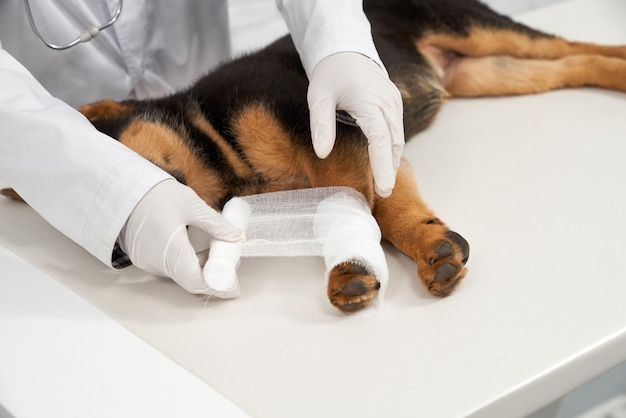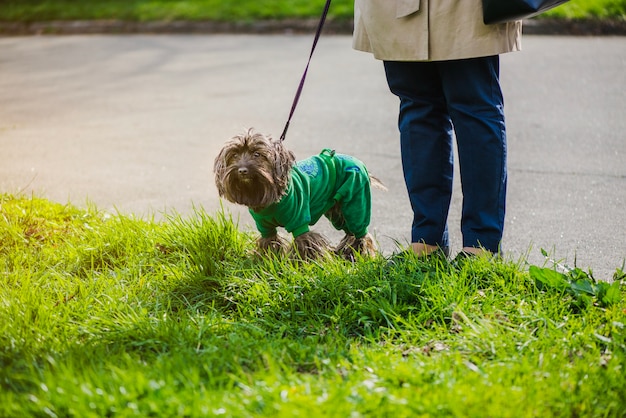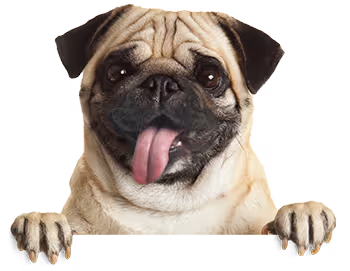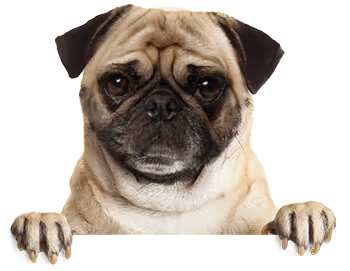Understanding FHO Surgery for Hip Issues in Pets

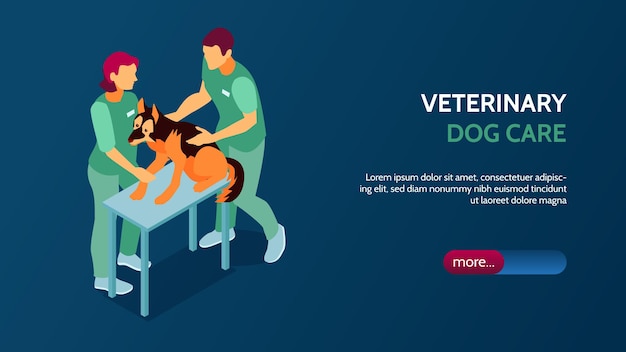
Understanding FHO Surgery for Hip Issues in Pets
When your beloved pet starts to limp, struggle with movement, or show signs of pain, it can be both worrying and confusing. Hip problems are among the most common orthopedic issues in pets, and they can have a serious impact on your pet’s comfort and ability to enjoy daily life. At Blue Waters Animal Hospital, located at 3630 Thompson Bridge Road, Suite 18B, Gainesville, GA 30506, our veterinary team is committed to providing compassionate solutions for conditions like hip dysplasia and traumatic hip injuries. One highly effective treatment we offer is FHO surgery for pets, a specialized procedure designed to restore mobility and reduce pain.
In this blog, we’ll walk you through everything you need to know about FHO (Femoral Head Ostectomy) surgery. You’ll learn when it’s recommended, what the procedure involves, how it helps resolve pet hip dysplasia in Gainesville, and what you can expect during your pet’s recovery. Whether you’re searching for information about pet hip dysplasia surgery in Gainesville or simply want to understand how to keep your pet comfortable, our goal is to provide clear answers and guidance. If you’re looking for a “vet near me” that offers experienced care for orthopedic issues, Blue Waters Animal Hospital is here to help you every step of the way.
To get started, you can also explore more about FHO surgery for pets on our website, or continue reading for an in-depth look at this important procedure.
Recognizing Hip Problems in Pets: When Is FHO Surgery Needed?
It’s often heartbreaking to see your pet struggle with pain or mobility issues. Recognizing the signs of hip problems early can make a significant difference in your pet’s quality of life and long-term outcome. In many cases, FHO surgery for pets becomes a consideration when other treatments have not provided enough relief.
Key symptoms that may indicate your pet is experiencing hip discomfort include persistent limping, difficulty rising or jumping, reluctance to climb stairs, and visible pain when the hip area is touched. Some pets may also develop muscle loss in the affected leg, or you might notice changes in behavior such as irritability or a decrease in activity levels. In cases of severe hip dysplasia or after a traumatic injury, you may even see sudden lameness or an inability to bear weight on one leg.
For pet owners in Gainesville and surrounding communities, these symptoms may be especially noticeable after your pet has been active outdoors, exploring the parks and trails near Lake Lanier. If you observe these signs, it’s important to schedule an appointment with our veterinary team as soon as possible. Early intervention can help prevent more serious complications and improve your pet’s comfort.
If you are interested in learning more about the underlying causes and diagnosis of hip dysplasia in pets, visit our hip dysplasia resource for additional guidance.
Understanding Why Hip Issues Occur in Pets
Hip problems can develop in pets for several reasons, with hip dysplasia and traumatic injuries being the most common underlying causes. Hip dysplasia is a hereditary condition where the hip joint does not develop properly, leading to joint instability, inflammation, and eventually arthritis. This condition affects both dogs and cats, but certain breeds are more predisposed than others. Large breed dogs, such as Labradors and German Shepherds, are particularly at risk, but hip dysplasia can occur in pets of any size.
Injuries, such as being struck by a car or experiencing a hard fall, can also cause the femoral head (the ball part of the hip joint) to become damaged or dislocated. In some situations, severe arthritis or degeneration over time can lead to chronic pain that does not respond to medications or lifestyle adjustments. Gainesville’s active lifestyle and outdoor culture mean pets are often more susceptible to accidental injuries, making awareness and prevention crucial for local pet owners.
When medical management is no longer effective, or when hip joint damage is severe, FHO surgery for pets in Gainesville becomes a reliable solution. This procedure is specifically designed for situations where the hip joint cannot be preserved but pain relief and improved mobility are still possible.
Exploring FHO Surgery for Pets: What the Procedure Involves
FHO, or Femoral Head Ostectomy, is a surgical procedure where the damaged “ball” of the hip joint—the femoral head and neck—is carefully removed. This eliminates the bone-on-bone contact that causes pain and allows your pet’s body to form a “false joint” made of scar tissue and muscle. While this new joint isn’t identical to the original, it can provide significant pain relief and restore much of your pet’s ability to walk, run, and play.
The FHO surgery for pets is especially effective for small to medium-sized dogs and cats. For larger dogs, the suitability of the procedure depends on factors such as weight, muscle mass, and the degree of hip damage. After a thorough examination and diagnostic imaging, our veterinary professionals will determine if your pet is a good candidate for this surgery.
During the procedure, your pet will be placed under general anesthesia. Our skilled surgical team will make a small incision over the hip, remove the femoral head and neck, and close the incision with sutures. The entire process is performed with the utmost attention to safety, comfort, and pain management. At Blue Waters Animal Hospital, we combine advanced surgical techniques with individualized attention, ensuring your pet receives the highest standard of care throughout every stage.
For pet owners seeking more information about other orthopedic procedures we provide, including fracture repairs and knee surgeries, our orthopedic surgery services page offers additional details.
What to Expect During Recovery
Recovery after FHO surgery for pets in Gainesville typically involves several weeks of rest, controlled activity, and physical therapy. Initially, your pet may need assistance moving around, and pain medications will be provided to manage discomfort. Gradually, light exercise and gentle range-of-motion activities will help rebuild muscle strength and flexibility in the affected leg.
Most pets adapt very well to the changes in their hip joint, especially when they receive consistent support and follow-up care. Your veterinary team will guide you through each step, from monitoring the surgical site for signs of infection to creating a rehabilitation plan tailored to your pet’s needs. Physical therapy, either at home or in the clinic, is important for helping your pet regain function and confidence.
Pets in active households, or those who love to explore the beautiful Gainesville outdoors, often return to their favorite activities after a successful FHO surgery. With patience and encouragement, your pet can enjoy a happy, comfortable life.
Preventing Hip Issues and Supporting Your Pet's Health at Home
While some causes of hip problems, such as genetics, cannot be prevented, there are several proactive steps you can take to support your pet’s joint health and reduce the risk of injury. Maintaining a healthy body weight is one of the most important factors; excess weight puts additional strain on the hip joints and can worsen conditions like hip dysplasia. Feeding a balanced diet, providing regular, low-impact exercise, and avoiding excessive jumping or rough play can all contribute to healthier joints.
For pets with a history of hip problems, your veterinary team may recommend joint supplements, anti-inflammatory medications, or adjustments to your pet’s environment, such as using ramps instead of stairs. Early detection and intervention are key, so routine wellness exams are essential for monitoring your pet’s mobility and overall health.
If you’re concerned about your pet’s risk for hip dysplasia or want to learn more about preventive strategies, our veterinarians are always available to discuss personalized care plans. For additional information, the American College of Veterinary Surgeons provides detailed resources about FHO surgery and hip dysplasia that may be helpful.
When to Seek Veterinary Care for Hip Issues
Knowing when to schedule an appointment with your veterinarian is crucial for effective treatment and pain relief. You should contact Blue Waters Animal Hospital promptly if your pet is experiencing persistent limping, sudden lameness, visible pain, or reluctance to move. These symptoms may indicate a serious hip problem that requires immediate evaluation.
Additionally, if your pet has suffered a traumatic injury, such as being hit by a car or falling from a significant height, urgent veterinary assessment is essential. Delaying care can lead to worsening pain, muscle atrophy, and reduced surgical outcomes. Our veterinary team in Gainesville is equipped to diagnose and manage a wide range of orthopedic conditions, including those requiring pet hip dysplasia surgery in Gainesville.
If you are searching for a “quality vet near me” who is experienced in orthopedic procedures, Blue Waters Animal Hospital is committed to providing the expertise and compassionate care your pet deserves.
Your Partner for FHO Surgery for Pets in Gainesville, GA
FHO surgery for pets is a proven solution for many cases of hip dysplasia and traumatic hip injury, restoring mobility and comfort when other options have failed. At Blue Waters Animal Hospital, we understand how much your pet means to you, and we are dedicated to supporting you from diagnosis through recovery. Our experienced veterinary professionals offer advanced surgical care, personalized rehabilitation plans, and ongoing guidance to help your pet thrive.
If you’re concerned about your pet’s mobility or considering pet hip dysplasia surgery in Gainesville, we encourage you to schedule a consultation with our team. We are here to answer your questions, provide honest advice, and create a treatment plan tailored to your pet’s unique needs.
To learn more about FHO surgery for pets or to schedule an appointment, call us at (678) 656-7639 or visit us at 3630 Thompson Bridge Road, Suite 18B, Gainesville, GA 30506. For pet owners searching for the “best veterinarian near me” for orthopedic surgery, Blue Waters Animal Hospital is proud to serve Gainesville and surrounding communities with excellence and compassion.
Remember, timely intervention can make all the difference in your pet’s long-term health and happiness. Our veterinary team looks forward to being your trusted partner in pet care, every step of the way.




